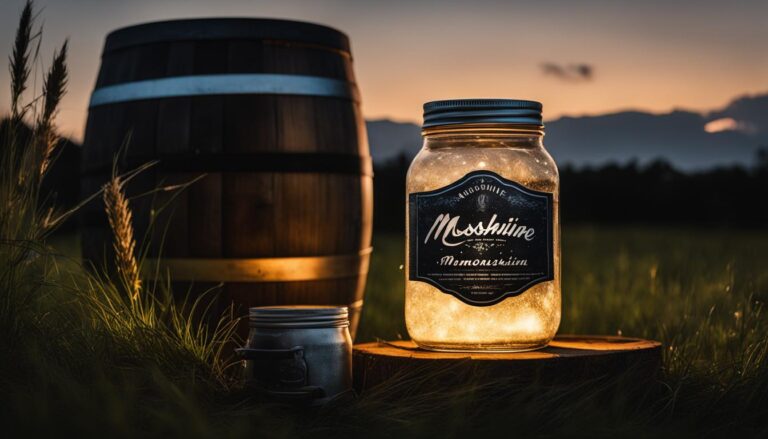Unveiling the Mystery: Why Can’t Mormons Drink Coffee?
Greetings, dear reader! Today, I invite you to delve into the intriguing realm of Mormon beliefs and uncover the mystery behind one particular prohibition: coffee. Have you ever wondered why Mormons abstain from this beloved caffeinated beverage? Let’s explore the fascinating world of Mormonism and its unique perspective on coffee consumption.
Key Takeaways:
- Mormons cannot drink coffee due to the religious belief known as the Word of Wisdom.
- The Word of Wisdom is a health code that advises against consuming hot drinks, including coffee and tea.
- Mormons believe that adhering to the Word of Wisdom brings physical and spiritual blessings.
- The restriction on coffee is based on concerns about its negative health effects and a focus on spiritual well-being.
- The interpretation of “hot drinks” in the Word of Wisdom includes coffee and tea, while herbal teas and non-caffeinated drinks are generally allowed.
The Word of Wisdom and Its Origins
The restriction on coffee for Mormons stems from a religious belief known as the Word of Wisdom. This belief is rooted in the teachings of Joseph Smith, the founder of The Church of Jesus Christ of Latter-day Saints, who received a revelation called the Word of Wisdom in the 1830s. It advises Mormons to follow a health code that includes abstaining from certain foods and substances. Coffee is considered a “hot drink” and is seen as incompatible with the principles outlined in the Word of Wisdom. Mormons believe that adhering to this health code brings physical and spiritual blessings.
The Word of Wisdom is considered scripture by Mormons and is found in the Doctrine and Covenants, a book of revelations. It states, “And again, hot drinks are not for the body or belly” (Doctrine and Covenants 89:9). While the term “hot drinks” is not explicitly defined in the scripture, it has been widely understood by Mormons to encompass coffee and tea. Herbal teas and other non-caffeinated drinks are generally allowed within the framework of the Word of Wisdom.
The Word of Wisdom is more than just a dietary guideline; it is a way of life for Mormons. It is believed that by following the Word of Wisdom, individuals can maintain physical and spiritual well-being.
The Lifestyle Choices Guided by the Word of Wisdom
The Word of Wisdom not only advises against consuming hot drinks like coffee but also encourages Mormons to make other lifestyle choices that promote good health and well-being. These choices include avoiding tobacco and alcohol, eating a wholesome diet of fruits, vegetables, and grains, and engaging in regular physical activity.
Mormons view the Word of Wisdom as a divine counsel that helps them live virtuous lives and strengthens their connection with God. By adhering to the principles outlined in the Word of Wisdom, Mormons believe they can lead more fulfilling and spiritually enriched lives.
Living according to the Word of Wisdom is a personal commitment for Mormons. It is seen as a way to show gratitude to God for the gift of their bodies and to honor the principle of stewardship. By making conscious choices that align with the Word of Wisdom, Mormons strive to cultivate self-discipline and spiritual growth.
The Interpretation of Hot Drinks
Within the Word of Wisdom, Mormons interpret hot drinks to include coffee and tea. This interpretation is based on the belief that these beverages have negative health effects and can hinder spiritual well-being. While the term “hot drinks” is not explicitly defined in the scripture, it has been widely understood by Mormons to encompass coffee and tea. Herbal teas and other non-caffeinated drinks are generally allowed within the framework of the Word of Wisdom.
As Mormons, we believe that adhering to the Word of Wisdom brings physical and spiritual blessings. By abstaining from coffee and tea, we prioritize our health and spiritual well-being. The restriction on hot drinks aligns with our commitment to maintaining a clear mind and body, allowing us to be receptive to divine guidance.
While the interpretation of hot drinks has remained consistent within the Mormon faith, other aspects of the Word of Wisdom have evolved over time. It is important to note that the Word of Wisdom does not explicitly mention coffee or caffeine. Instead, it provides general guidelines and principles for healthy living. The authority and interpretation of Mormon leaders play a role in understanding and applying these principles in our daily lives.
The Significance of the Coffee Prohibition
For many Mormons, the prohibition on coffee is not just about personal preference but is seen as a manifestation of their faith. Adhering to the Word of Wisdom is believed to access spiritual blessings and safeguard physical health. By abstaining from coffee, Mormons believe they are maintaining a clear mind and body, allowing them to be receptive to divine guidance. The strictness with which some Mormons adhere to the prohibition on coffee can have social and cultural ramifications, leading to public shaming and exclusion from certain church rituals or leadership roles.
Mormons place great importance on following the Word of Wisdom, as it is considered a commandment from God. The coffee prohibition serves as a reminder of their commitment to their religious beliefs and the principles outlined in the Word of Wisdom. This strict adherence to the dietary code sets Mormons apart and forms part of their identity as faithful members of The Church of Jesus Christ of Latter-day Saints.
While the coffee prohibition may seem restrictive to outsiders, many Mormons find fulfillment in living according to their religious principles. They view the restriction on coffee as a way to prioritize their spiritual well-being over potential negative health effects. The belief that abstaining from coffee allows them to maintain clarity of mind and maintain a healthy lifestyle further strengthens their commitment to the Word of Wisdom.
The Cultural Impact of the Coffee Prohibition
The strict interpretation of the coffee prohibition within the Mormon community has created a distinct cultural landscape. Mormons who choose to drink coffee can face scrutiny and judgment from their peers. Public shaming and social exclusion are not uncommon when it comes to deviating from the dietary restrictions outlined in the Word of Wisdom. This can create a sense of division and exclusion among Mormons, especially for those who do not adhere strictly to the coffee prohibition.
Furthermore, the coffee prohibition can also have an impact on social interactions and gatherings within the Mormon community. Coffee is a common beverage in many social situations, and Mormons who abstain from drinking it may find themselves seeking alternative options or opting out of certain social activities. This can contribute to a sense of isolation and can further reinforce the cultural significance of the coffee prohibition within the Mormon community.
| Mormon Beliefs | Impact of Coffee Prohibition |
|---|---|
| Prioritization of spiritual well-being | Mormons believe that abstaining from coffee allows them to maintain clarity and be receptive to divine guidance. |
| Commitment to religious principles | The coffee prohibition serves as a reminder of their dedication to the Word of Wisdom and sets Mormons apart as faithful followers. |
| Cultural division and exclusion | Strict adherence to the coffee prohibition can lead to social shaming and exclusion within the Mormon community. |
| Impact on social interactions | Not drinking coffee may require Mormons to seek alternative options or opt out of certain social activities. |
Health Effects and Spiritual Well-being
Mormons abstain from drinking coffee due to concerns about its impact on their physical and spiritual well-being. The Word of Wisdom, a health code followed by Mormons, advises against consuming hot drinks, including coffee. By adhering to this dietary restriction, Mormons believe they prioritize their spiritual well-being over potential negative health effects.
Research has shown that excessive coffee consumption can have various health effects, including insomnia, increased heart rate, and digestive problems. Mormons aim to live a healthy and spiritually fulfilling life by avoiding coffee altogether. By abstaining from coffee, they believe they maintain a clear mind and body, allowing them to be receptive to divine guidance.
The Word of Wisdom is not just about avoiding harmful substances but encompasses a holistic approach to health and well-being. It emphasizes the importance of moderation, self-control, and taking care of the body as a sacred gift from God.
While coffee alternatives are available, such as herbal tea or fruit infusions, Mormons view the restriction on coffee as part of a commitment to a healthy lifestyle and spiritual well-being. This commitment extends beyond traditional brewed coffee to include cold brew and decaffeinated coffee, as the focus is on abstaining from any beverage made from coffee beans, regardless of the brewing method or caffeine content.
| Health Effects of Coffee on Mormons | Alternatives to Coffee for Mormons |
|---|---|
| – Insomnia | – Herbal tea |
| – Increased heart rate | – Fruit infusions |
| – Digestive problems | – Decaffeinated coffee |
By exploring these alternatives, Mormons can still enjoy flavorful and comforting beverages while adhering to their religious teachings and maintaining their commitment to the Word of Wisdom.
Social and Cultural Ramifications
Drinking coffee may have social and cultural ramifications for Mormons. Adhering to the Word of Wisdom is highly valued and seen as a marker of one’s faithfulness. Those who choose to drink coffee may face public shaming within the community and potential exclusion from certain church rituals. Mormons who openly admit to drinking coffee can be restricted from participating in leadership roles. Despite the potential backlash, many Mormons find fulfillment in living according to their religious principles and view the restriction on coffee as part of a commitment to a healthy lifestyle and spiritual well-being.
In Mormon communities, the practice of shaming individuals who consume coffee is not uncommon. The act of publicly criticizing and shunning those who choose to drink coffee is seen as a way to reinforce adherence to the Word of Wisdom and maintain the purity of the community. This coffee shaming can result in strained relationships and feelings of isolation for individuals who do not adhere to the prohibition. However, it is important to note that not all Mormons engage in coffee shaming, and attitudes towards coffee consumption can vary among individuals and communities.
The exclusion of coffee drinkers from certain church rituals and leadership roles is another consequence of the coffee prohibition within Mormonism. The Word of Wisdom is considered a commandment by Mormons, and those who choose to disregard it, specifically by consuming coffee, may be seen as lacking commitment to their faith. This exclusion can create a divide between members who strictly adhere to the Word of Wisdom and those who struggle to do so. It is worth mentioning that the severity of exclusion varies among different Mormon congregations and may be influenced by local leadership.
| Effect | Impact |
|---|---|
| Social ostracism | Individuals who drink coffee may face shaming and criticism within the Mormon community. |
| Exclusion from rituals | Coffee drinkers may be restricted from participating in certain church rituals and ceremonies. |
| Limitations in leadership | Those who openly admit to drinking coffee may be prevented from holding leadership positions within the church. |
Extending Beyond Traditional Coffee
While coffee is off-limits for Mormons due to their adherence to the Word of Wisdom, the prohibition extends beyond traditional brewed coffee. Mormons abstain from any beverage made from coffee beans, regardless of the brewing method or caffeine content. The focus is not solely on caffeine but on the principle of avoiding hot drinks altogether. As a result, Mormons seek alternatives to coffee that align with their religious teachings and allow them to maintain their commitment to the Word of Wisdom.
One popular alternative to coffee for Mormons is herbal tea. Since herbal teas are typically brewed from plants other than coffee or tea leaves, they do not violate the Word of Wisdom. Mormons often enjoy a wide variety of herbal teas, such as chamomile, peppermint, or fruit infusions, as a caffeine-free and flavorful substitute for coffee.
In addition to herbal tea, Mormons also explore other caffeine-free alternatives like hot chocolate or carob-based beverages. These options provide a warm and comforting drink without the use of coffee beans or caffeine. Some Mormons also choose to drink hot cider or spiced apple juice, particularly during the colder months, as a wholesome and delicious alternative.
Overall, Mormons are creative in finding substitutes for coffee, ensuring that their choices align with their religious beliefs and commitment to the Word of Wisdom. While they may forgo traditional coffee, they have a range of satisfying options that allow them to enjoy a warm beverage without compromising their faith.
The Authority of Mormon Leadership
When it comes to the interpretation and enforcement of the coffee prohibition within Mormonism, the authority of Mormon leadership plays a crucial role. Over time, there have been changes and debates surrounding the exact stance on coffee and other caffeinated beverages within the Mormon community.
The Word of Wisdom, the religious text that outlines the dietary restrictions including the prohibition on hot drinks, does not explicitly mention coffee or caffeine. Early church leaders interpreted the prohibition to include tea and coffee, but the interpretation has evolved over the years. Today, the official stance of the LDS church is that caffeine itself is not prohibited.
“The Word of Wisdom does not specifically mention caffeine…” – LDS Church Official Statement
While the church has clarified that coffee and tea are considered “hot drinks” and thus prohibited, there are differing opinions among Mormon leaders and members regarding other caffeinated beverages. Some Mormons choose to abstain from all caffeinated beverages, including soda, while others may consume them in moderation.
The authority and interpretation of Mormon leaders on the Word of Wisdom continue to shape the understanding and practice of the coffee prohibition within the Mormon community. While there may be debate and varying perspectives, the LDS church has reinforced its stance on coffee, emphasizing the importance of adhering to the Word of Wisdom as a way to maintain physical and spiritual well-being.
Influential Quotes:
“The Word of Wisdom does not specifically mention caffeine, the Church’s health guidelines prohibit alcoholic drinks, smoking or chewing of tobacco, and “hot drinks,” which have been defined by Church leaders as coffee and tea.” – The Church of Jesus Christ of Latter-day Saints
“The precise nature of the hot drinks specifically mentioned in the Word of Wisdom is uncertain. But the general consensus has been the substance is tea and coffee.” – Apostle Dallin H. Oaks
| Mormon Leader | Interpretation of the Word of Wisdom |
|---|---|
| Apostle Dallin H. Oaks | The prohibition includes tea and coffee. |
| Apostle Russell M. Nelson | Caffeine itself is not prohibited, but the Word of Wisdom advises against excessive consumption of any substance. |
| Apostle Jeffrey R. Holland | Caffeinated beverages like soda are a matter of personal choice and discretion. |
These quotes from influential Mormon leaders highlight the varied interpretations and understandings within the Mormon community regarding the coffee prohibition and the Word of Wisdom.
The Doubling Down on the Coffee Prohibition
In recent years, the Mormon Church has reaffirmed and reinforced its stance on the prohibition of coffee consumption. Despite speculation and debate surrounding a potential change in this belief, the Church has clarified that the Word of Wisdom, their health code, remains in full force and that the interpretation of “hot drinks” includes coffee and tea. This reaffirmation reflects the continued significance and adherence to the Word of Wisdom within the Mormon faith.
Mormons view the prohibition on coffee as an integral part of their religious principles and commitment to a healthy lifestyle and spiritual well-being. By abstaining from coffee, Mormons believe they can access physical and spiritual blessings. This dedicated adherence to the Word of Wisdom is a testament to the strength of their faith and the importance they place on living in accordance with their religious teachings.
“The Word of Wisdom is not just a suggestion for us Mormons. It is a divine commandment that we take seriously. Avoiding coffee is not always easy, especially in a world that heavily promotes its consumption, but it is a sacrifice we willingly make to honor our faith and receive the promised blessings.”
The reinforcement of the coffee prohibition also highlights the authority of Mormon leadership in interpreting religious doctrine. The LDS church has the power to clarify and emphasize certain beliefs, ensuring consistency and unity among its members. This reaffirmation serves as a reminder to Mormons of the importance of adhering to the Word of Wisdom and the spiritual significance it holds within their community.
| Mormon Stance on Coffee | Reinforcing the Word of Wisdom |
|---|---|
| The LDS church has reaffirmed the prohibition on coffee consumption. | The Word of Wisdom, their health code, remains in full force. |
| The interpretation of “hot drinks” includes coffee and tea. | This clarification demonstrates the continued significance of the Word of Wisdom. |
| This reaffirmation reflects the commitment to a healthy lifestyle and spiritual well-being. | Mormons believe adhering to their religious principles brings physical and spiritual blessings. |
| The Mormon Church’s stance on coffee is governed by the authority of its leadership. | Reinforcing the prohibition emphasizes the importance of the Word of Wisdom. |
Conclusion
In conclusion, the prohibition on coffee is deeply ingrained in Mormon beliefs and practices. As followers of the Word of Wisdom, Mormons abstain from consuming hot drinks, which includes coffee. By adhering to this dietary restriction, Mormons believe they can receive both physical and spiritual blessings. The restriction on coffee is not simply a matter of personal preference, but a commitment to a healthy lifestyle and spiritual well-being.
Despite potential social and cultural ramifications, many Mormons find fulfillment in living according to their religious principles. They view the restriction on coffee as an opportunity to prioritize their physical health and maintain a clear mind and body. The belief in the Word of Wisdom guides Mormons’ choices and fosters a sense of unity within the community.
Mormonism’s stance on coffee and caffeine remains steadfast. The recent reaffirmation by the LDS church of the coffee prohibition reinforces the continued significance of the Word of Wisdom within the faith. For Mormons, abstaining from coffee is not just about avoiding a beverage; it is a testament to their commitment to living a healthy and spiritually fulfilling life.
FAQ
Why can’t Mormons drink coffee?
Mormons cannot drink coffee due to their religious belief known as the Word of Wisdom. This health code advises against consuming hot drinks, which include coffee and tea. Mormons believe that adhering to the Word of Wisdom brings physical and spiritual blessings.
What is the Word of Wisdom?
The Word of Wisdom is a health code received by Joseph Smith in the 1830s. It guides Mormons in making dietary choices and advises them to abstain from certain foods and substances, including hot drinks like coffee and tea.
Why is coffee considered a “hot drink” in the Word of Wisdom?
Mormons interpret “hot drinks” within the Word of Wisdom to include coffee and tea. This interpretation is based on concerns about the negative health effects of these beverages and a focus on spiritual well-being.
Are there any alternatives to coffee for Mormons?
Yes, Mormons seek alternatives to coffee that align with their religious teachings, such as herbal tea or fruit infusions.
What are the social and cultural ramifications of drinking coffee as a Mormon?
Drinking coffee may lead to public shaming within the Mormon community and potential exclusion from certain church rituals or leadership roles.
Does the prohibition on coffee extend to other coffee-based drinks?
Yes, the prohibition on coffee for Mormons extends beyond traditional brewed coffee and includes cold brew and decaffeinated coffee. Mormons abstain from any beverage made from coffee beans, regardless of the brewing method or caffeine content.
Has the interpretation of the coffee prohibition changed over time?
The interpretation and enforcement of the coffee prohibition within Mormonism have evolved over time, leading to varied understandings among members. However, the LDS church has recently reaffirmed and reinforced the coffee prohibition, demonstrating the continued significance and adherence to the Word of Wisdom.
Is the prohibition on coffee based on caffeine content?
The focus of the coffee prohibition for Mormons is not solely on caffeine but on the principle of avoiding hot drinks altogether. Caffeinated beverages like soda are not explicitly prohibited, but interpretations may vary among individuals.
Are there health effects associated with drinking coffee for Mormons?
Mormons believe that avoiding coffee helps maintain physical and spiritual well-being. Excessive coffee consumption has been linked to issues such as insomnia, increased heart rate, and digestive problems.
Is there a possibility of a change in the Mormon stance on coffee in the future?
While there has been speculation and debate about a possible change in the church’s stance on coffee, the LDS church has reaffirmed and reinforced the coffee prohibition in response to these discussions. The Word of Wisdom, including the prohibition on coffee, remains an integral part of Mormon beliefs and practices.
Source Links







